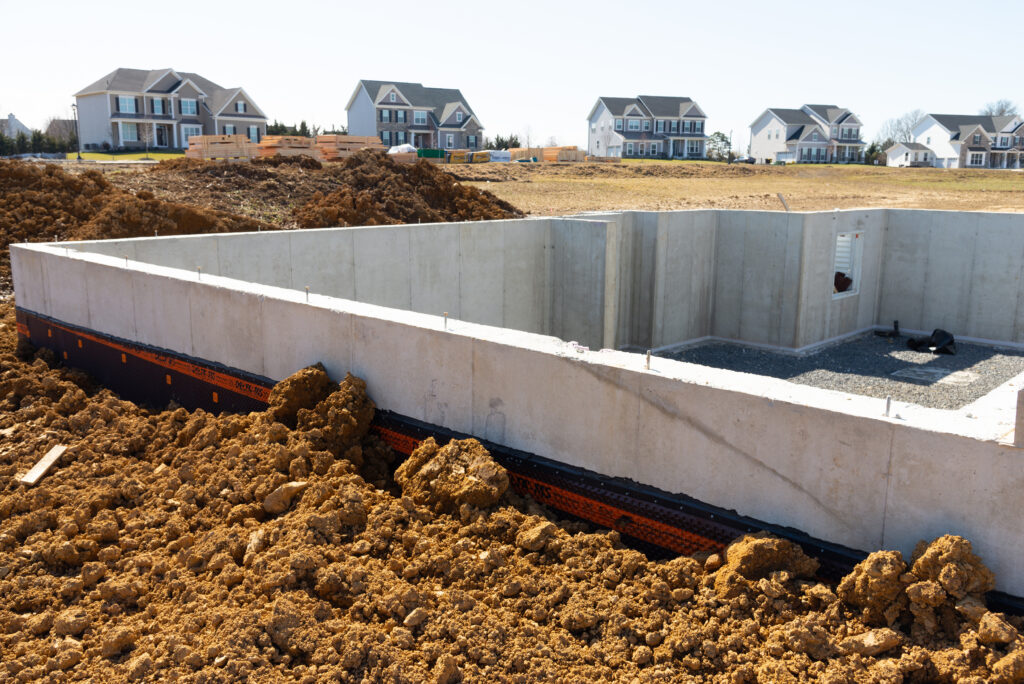Opening Hook
In Lahore, one July morning, construction workers gathered at a housing site ready to begin digging for a new basement. The sun had barely risen, and the air was thick with humidity. Suddenly, clouds rolled in, and within an hour, the site was flooded ankle-deep. What was supposed to be a productive day of excavation quickly turned into a muddy, waterlogged nightmare.
If you’ve ever built—or even thought of building—a basement in Pakistan, you know the monsoon season isn’t just about romantic rainy evenings. It can make or break your construction project. But why exactly does monsoon pose such a challenge for basement excavation? And more importantly, how can homeowners and builders prepare for it? Let’s dive deeper.
The Unpredictable Nature of Monsoon in Pakistan
Basement excavation depends heavily on dry, stable soil conditions. Unfortunately, the monsoon in Pakistan is anything but predictable. From late June to September, heavy downpours sweep across the country, with cities like Karachi, Lahore, and Islamabad seeing frequent waterlogging.

For instance, in Karachi’s Clifton area, a planned basement parking project had to be halted multiple times because sudden cloudbursts kept flooding the excavation pit. Contractors lost weeks of work, and costs skyrocketed.
As a result, planning excavation during monsoon requires anticipating not just “when” it rains, but “how much” it will rain. A single night of heavy rainfall can undo weeks of careful digging.
Read More: Moisture-Resistant Furniture Material Ideas: Choosing Pieces That Last a Lifetime
Waterlogging: The Biggest Obstacle
The most immediate challenge during monsoon excavation is water accumulation in the pit. When rainwater seeps into freshly dug soil, it creates dangerous conditions.
Furthermore, stagnant water weakens soil walls, making them prone to collapse. Workers face safety hazards, and equipment risks of getting damaged. In some cases, foundations shift because the water alters soil density.
Take the example of a basement excavation in Rawalpindi’s Satellite Town. The contractor underestimated the impact of heavy rain, and within hours, the pit filled with water. Pumps were brought in, but the delay cost weeks and inflated the budget significantly.
Read More: Creating a YouTube Studio in a Basement :Turning Hidden Spaces into Creative Havens
Soil Erosion and Weakening Foundations
Another major issue is soil erosion. Rainwater washes away loose soil, leaving behind unstable ground. This not only makes excavation slower but also compromises the future stability of the basement.
In contrast, dry-season excavation allows for stronger, well-compacted soil that can support heavy structures. During the monsoon, engineers often find themselves reinforcing pit walls with shoring systems or sheet piling to prevent collapse.
For instance, in Lahore’s Johar Town, a developer had to invest in steel sheet piles just to hold back soil during a rainy excavation. While effective, this added expense nearly doubled the initial budget.
Read More: Creating Balanced Lighting with Wall Washers: A Guide to Illuminating Your Space
Increased Construction Costs
Monsoon isn’t just a scheduling issue—it’s also a financial burden.
As a result of constant water pumping, soil stabilization measures, and weather delays, costs can spiral quickly. Contractors must hire dewatering systems, extend project timelines, and sometimes even redo damaged work.
For homeowners building basements in Pakistan, this often translates into budgets overshooting by 20–30%. A family in Islamabad shared that their dream basement home theater ended up costing far more than expected because monsoon delays forced them to bring in extra machinery to keep the pit dry.
Read More: Feng Shui Tips for Basement Layouts :Creating Balance Below Ground
Safety Risks for Workers
Excavation is already one of the riskiest phases of construction. Add heavy rainfall, and the dangers multiply.
For instance, slippery conditions can cause machinery to topple, while weakened pit walls increase the chance of cave-ins. Furthermore, electric equipment used in wet conditions can create hazards of shocks or fires.
This is why many construction companies in Karachi and Lahore temporarily halt excavation during peak monsoon weeks, prioritizing worker safety over speed.
Read More: Checklist Before Breaking Ground for a Basement
Impact on Project Timelines
Time is money in construction. Monsoon delays can push projects months behind schedule.
For example, a commercial plaza project in Karachi was delayed by nearly six months because basement excavation coincided with back-to-back rain spells. Tenants lost rental income, and contractors faced penalties for late delivery.
In contrast, excavation projects scheduled in October or November, after the monsoon, often proceed smoothly with minimal weather interruptions.
Read More: What to Do in Case of a Basement Gas Leak
Strategies to Handle Monsoon Excavation
While monsoon brings undeniable challenges, construction in Pakistan doesn’t simply stop for three months. Instead, builders rely on strategies to minimize risks.

- Dewatering Systems
Contractors use submersible pumps to continuously remove water from excavation pits. While expensive, this is often the only way to keep progress moving. - Sheet Piling and Shoring
Reinforcing pit walls prevents soil collapse. Steel or concrete barriers act as shields against erosion. - Weather Forecasting
In today’s digital age, monitoring forecasts is crucial. Planning around dry spells allows contractors to make significant progress before the next downpour. - Temporary Covers and Channels
Plastic sheets, tarpaulins, or even temporary drainage channels redirect rainwater away from the excavation site.
For instance, a project in Bahria Town Lahore successfully continued basement construction through July by installing heavy-duty pumps and protective sheeting. Although the costs rose, the team managed to stay on schedule.
Read More: Basement Office Ideas – 11 Stylish Work From Home Spaces
Lessons for Homeowners
If you’re planning to build a home with a basement in Pakistan, timing is everything.
- Avoid monsoon excavation if possible. Instead, aim for dry months like October to April.
- Budget for surprises. Set aside extra funds for dewatering and soil stabilization.
- Choose experienced contractors. Builders familiar with monsoon challenges can save you from costly mistakes.
- Focus on waterproofing. Even after construction, basements remain vulnerable to seepage during heavy rains. Investing in good waterproofing systems is crucial.
Read More: Lighting for Relaxation Zones in Meditation Rooms
The Bigger Picture: Climate Change and Heavier Rains
It’s also important to note that monsoon patterns are shifting. Climate change has made rainfall in Pakistan more erratic and intense. Cities like Karachi have faced unprecedented downpours in recent years, overwhelming drainage systems and flooding construction sites.
As a result, builders today must not only prepare for “normal” rain but also plan for extreme weather events that were once rare. Stronger foundations, advanced waterproofing, and better urban planning are no longer optional—they’re necessary.
Read More: How to Reduce Indoor Pollution in Underground Rooms
Closing: A Season of Caution and Preparation
The story of basement excavation during the monsoon is one of patience, planning, and resilience. Like Sara’s rain-flooded construction site in Lahore, many projects face hurdles when the skies open up. Yet with foresight and the right strategies, these challenges can be managed.
In summary, monsoon affects basement excavation in Pakistan by:
- Causing waterlogging and soil erosion,
- Increasing costs and delays,
- Creating safety hazards,
- Forcing homeowners and contractors to adapt to specialized methods.
Final Thought: If you’re planning a basement, think of monsoon not as an enemy but as a test of preparation. With the right timing and planning, your basement can withstand not just the rains of today but the unpredictable storms of tomorrow.
🏗️ Basement Project Calculator
Latest Post
-
How to Build a Legal Basement Apartment in the USA | Guide
Opening Hook Imagine this: you’re standing in the nearly-finished basement of your home in the USA, and the monthly rent from the future tenant—or perhaps your aging parents moving in with you—is just about enough to cover your mortgage. You’ve envisioned your own “in-law suite,” financial freedom, or added flexibility. But then, you pause and…
-
20 Best Basement Man Cave Ideas for the Ultimate Space
Imagine this: you come home after a long week in your busy USA-based life, head downstairs, flip on the lights in the basement, and step into your very own retreat — a space built just for you. That’s the magic of basement man cave ideas, a growing trend for homeowners who want a unique sanctuary…



